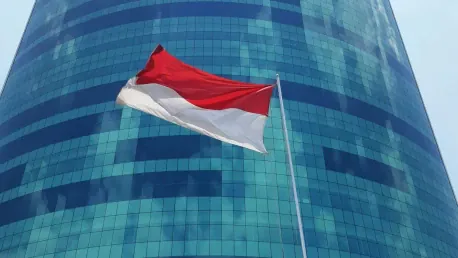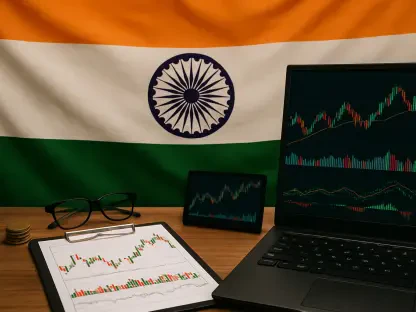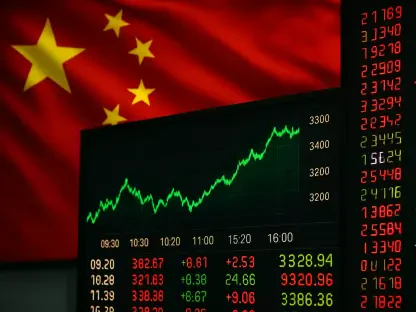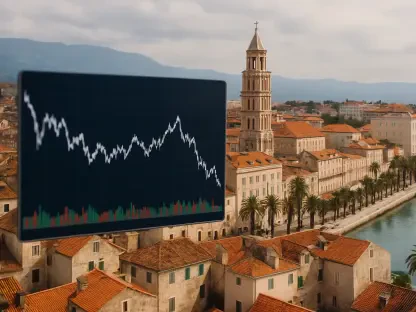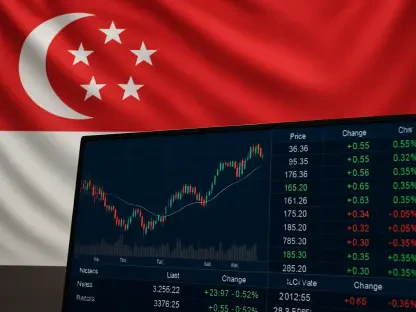As Indonesia finds itself amid evolving global trade policies, the potential repercussions of U.S. President-elect Donald Trump’s proposed measures have sparked anxiety among Indonesian bankers. Trump’s extensive fiscal strategies and proposed tariffs could pose significant hurdles to Indonesia’s growth and its financial schemes. Sunarso, President Director of Bank Rakyat Indonesia, asserted that a U.S.-China trade war could shave off approximately 0.2 percentage points from Indonesia’s economic growth, with a larger impact if other countries were to get embroiled in the trade disputes. Ensuring vigilance, he emphasized the profound effect such global tensions would wield over Indonesia’s economy.
Both China and the U.S. are pivotal trading partners for Indonesia, making the stakes particularly high. Bank Rakyat Indonesia’s growth forecast for the coming year hovers between 4.9% and 5.2%; however, an escalated trade war could reduce these projections to around 4.6%-4.9%. Darmawan Junaidi, CEO of Bank Mandiri, noted that a trade conflict could also impact global commodity prices, which are substantially influenced by China’s market demands. Given Indonesia’s status as a major exporter of commodities including palm oil, coal, nickel, tin, and rubber, any shifts in commodity-driven revenue due to changed global prices would certainly be felt acutely.
Impact on Global Trade and Commodities
Trump’s suggested tariffs, especially a 10% tariff on all U.S. imports and a stark 60% on Chinese products, have amplified concerns. Indonesian bankers are worried about inflation and the feasibility of future interest rate cuts. Royke Tumilaar, President Director of Bank Negara Indonesia, pointed out that such policies from the U.S. could thwart the Federal Reserve’s anticipated rate reductions, leading to increased liquidity pressures and complicating expansion plans. Traditionally, Indonesia benefits from capital inflows during periods when the Federal Reserve eases its monetary stance, attracting investors in search of higher returns. During times of global uncertainty, however, there is often a reverse trend, where capital flows out of emerging markets like Indonesia as investors’ risk aversion increases.
Bank Indonesia had already adopted a strategy of lowering interest rates, anticipating a similar move by the Federal Reserve. However, the unpredictability surrounding U.S. Treasury yields and future Fed policies makes it challenging for Indonesia to persevere with its rate-cutting agenda. The economic ripple effects of Trump’s policies underscore the complex web of considerations that Bank Indonesia must navigate in a volatile international financial landscape.
The Bigger Picture of Economic Strategies
Indonesia is navigating shifting global trade policies, with concerns mounting among its bankers over the potential impacts of U.S. President-elect Donald Trump’s proposed actions. Trump’s wide-ranging fiscal policies and suggested tariffs could challenge Indonesia’s growth and financial strategies. Sunarso, President Director of Bank Rakyat Indonesia, noted that a U.S.-China trade war might reduce Indonesia’s economic growth by about 0.2 percentage points, with a more significant impact if other countries become involved. He stressed the substantial effects such global tensions could have on Indonesia’s economy.
China and the U.S. are crucial trading partners for Indonesia, raising the stakes further. Bank Rakyat Indonesia forecasts growth between 4.9% and 5.2% for the next year, but an intensified trade war could lower these figures to around 4.6%-4.9%. Darmawan Junaidi, CEO of Bank Mandiri, warned that a trade conflict could also influence global commodity prices, heavily dictated by China’s demand. Given that Indonesia is a major exporter of commodities like palm oil, coal, nickel, tin, and rubber, any fluctuation in global prices would significantly affect its revenue.
